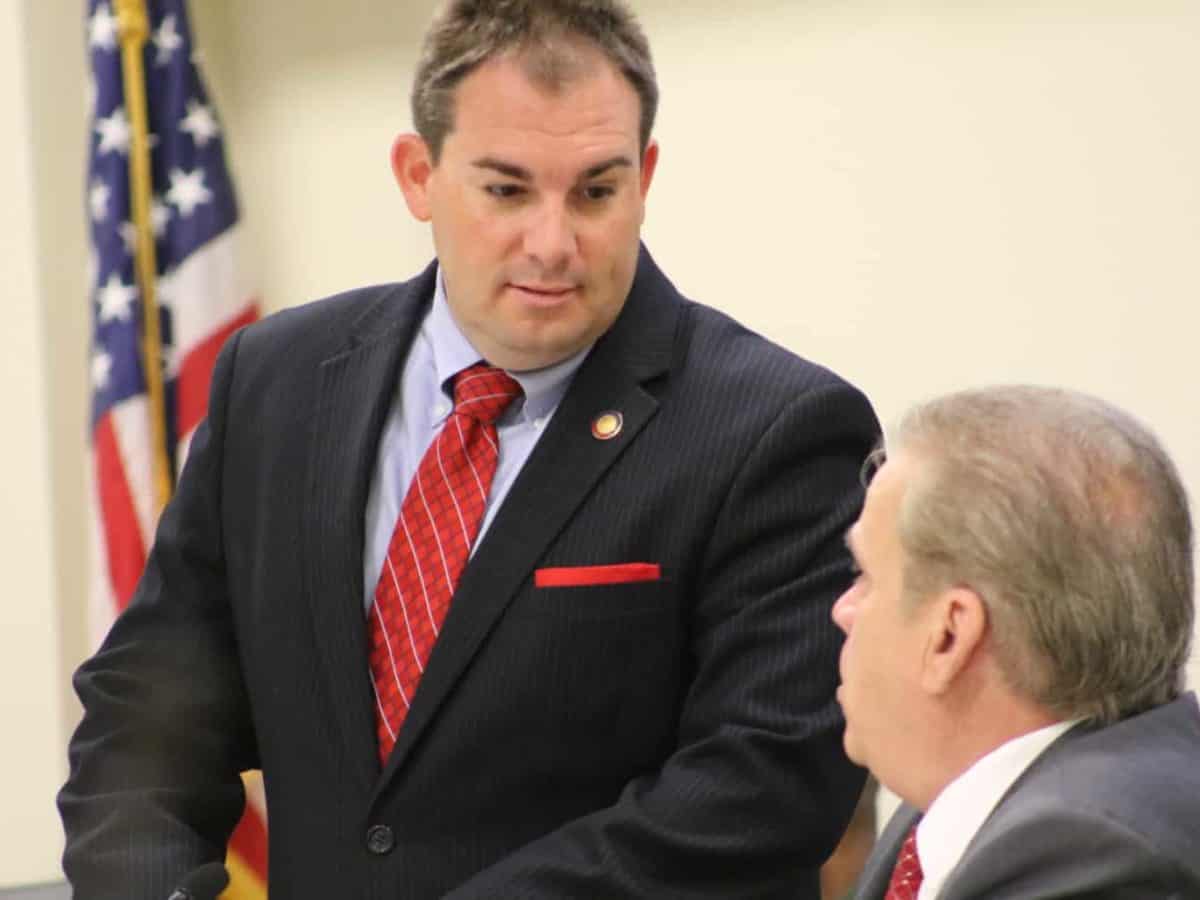

A panel discussion on student safety and wellbeing, featuring four state legislators, had gone on for 40 minutes or so when a text with a pointed question from the audience appeared on the video screens around the meeting room. To what extent had the House Select Committee on School Safety involved and listened to teachers and school administrators and staff?
The committee’s chair, Republican Rep. John A. Torbett of Gaston County, responded without hesitation: “100 percent.” Since it was formed in March, the committee has traveled, as he said, “everywhere from Boone to Wilmington and points in-between.”
“We listened to students, teachers, administrators, guidance counselors, nurses, psychologists, department of health and human services folks at the county level,” Torbett said. “…I would say probably 99.9 percent of the outcomes are a direct derivative of the information we heard from people with boots on the ground.”
House Speaker Tim Moore formed the committee shortly after the horrific mass shooting at Marjory Stoneman Douglas High School in Parkland, FL. Subsequently, in late October, a 16-year-old student shot and killed another 16-year-old in the hallway of Butler High School in Mecklenburg County. Just this week, Winston-Salem police arrested six students and used pepper spray to break up a fight at Parkland High School.
In contrast to previous legislation that appeared with insufficient or no consultation with educators, the select committee’s listening seems to have had an effect on policymaking. At first, said Torbett, the committee heard proposals for “gadgets and gizmos.” But as its deliberations proceeded, he said, lawmakers turned more toward “the source of the problem: behavioral health and mental health.”
While saying that “we should not be turning our schools into fortresses,” Republican Rep. Craig Horn of Union County, spoke in favor of “specific initiatives to harden schools” with protection technology. “I believe we need more school nurses,’’ he said.
Democratic Rep. Graig Meyer of Orange County, a professional school social worker, said that “every kid needs at least five consistent, supportive adults in their life.” For many children, it takes school professionals, in addition to parents and grandparents, to reach five, he said, “and right now we don’t have enough student services professionals in our schools.”
Similarly, Democratic Rep. Bobbie Richardson of Franklin County said, “So many times kids come to school and they do not feel like there’s anyone they can confide in.” She proposed a “department of health’’ consisting of counselors, psychologists and nurses.
The legislators’ panel discussion took place during a two-day “Summit on Student Safety and Wellbeing’’ at the University of North Carolina at Chapel Hill. (Full disclosure: I served as panel moderator.) With support from the schools of education, social work, medicine and public health, the event served as an example of a public university applying its research and convening power to addressing a challenging set of pending policy decisions.
For its part, EducationNC weighed in this week with both news reports and commentaries:
“Preventing the next tragedy: North Carolina’s complex search for school safety solutions”
“Building a road map to action for student safety and wellbeing”
“One educator’s perspective on school violence: ‘This could have been us'”
The release of the select committee’s report on Thursday capped off a week of focused attention on school safety. Conversations, deliberations, and debate will continue through the 2019 session of the General Assembly. The challenge for lawmakers is to decide what not to do as ineffective, what to do as holding promise of enhancing student wellbeing and how much to budget for what they decide to do.
The voices of educators, students, and health professionals remain crucial to the policymaking — and to assuring the confidence of young people and their parents in their schools as places of personal growth and security.
Analisa Sorrells, who attended the summit as a reporter, also contributed to this column.


